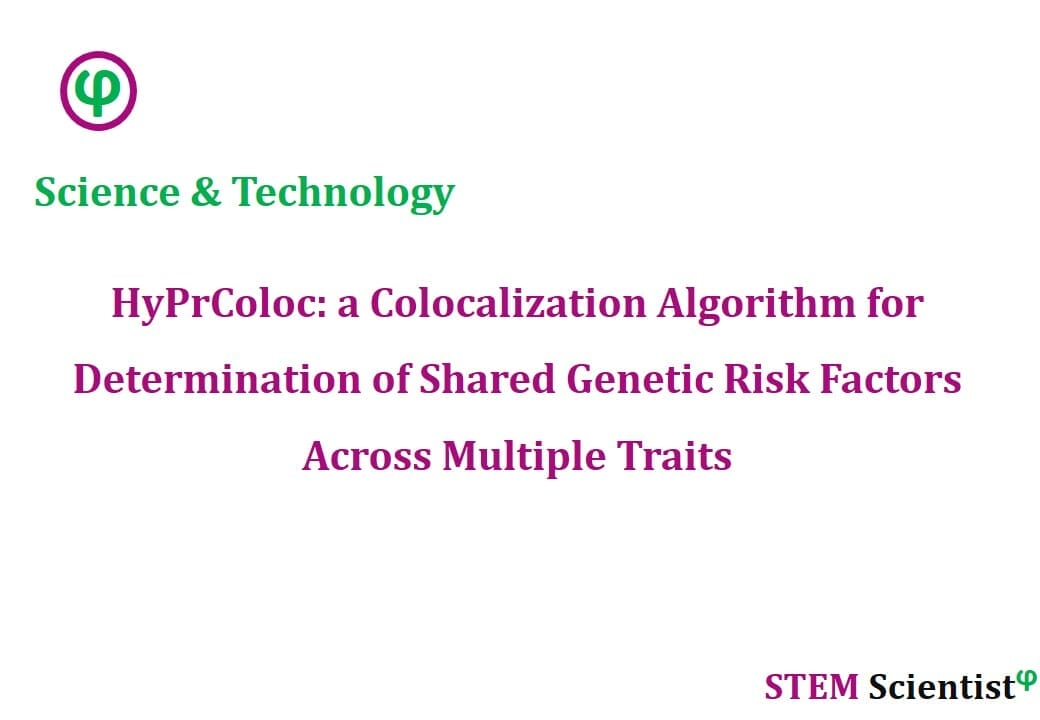
The following study was conducted by Scientists from MRC Biostatistics Unit, Cambridge Institute of Public Health, University of Cambridge, Cambridge, UK; Cardiovascular Epidemiology Unit, Department of Public Health and Primary Care, University of Cambridge, Cambridge, UK; MRC Integrative Epidemiology Unit, Population Health Sciences, Bristol Medical School, University of Bristol, Bristol, UK; School of Mathematics, University of Edinburgh, Kings Buildings, Edinburgh, UK; National Institute for Health Research Cambridge Biomedical Research Centre, University of Cambridge and Cambridge University Hospitals, Cambridge, UK; Department of Genetics, Novo Nordisk Research Centre Oxford, Oxford, UK. Study is published in Nature Communications Journal as detailed below.
Nature Communications; Volume 12, Article Number: 764 (2021)
A Fast and Efficient Colocalization Algorithm for Identifying Shared Genetic Risk Factors Across Multiple Traits
Abstract
Genome-wide association studies (GWAS) have identified thousands of genomic regions affecting complex diseases. The next challenge is to elucidate the causal genes and mechanisms involved. One approach is to use statistical colocalization to assess shared genetic aetiology across multiple related traits (e.g. molecular traits, metabolic pathways and complex diseases) to identify causal pathways, prioritize causal variants and evaluate pleiotropy. We propose HyPrColoc (Hypothesis Prioritisation for multi-trait Colocalization), an efficient deterministic Bayesian algorithm using GWAS summary statistics that can detect colocalization across vast numbers of traits simultaneously (e.g. 100 traits can be jointly analysed in around 1 s). We perform a genome-wide multi-trait colocalization analysis of coronary heart disease (CHD) and fourteen related traits, identifying 43 regions in which CHD colocalized with ≥1 trait, including 5 previously unknown CHD loci. Across the 43 loci, we further integrate gene and protein expression quantitative trait loci to identify candidate causal genes.
Source:
Nature Communications
URL: https://www.nature.com/articles/s41467-020-20885-8
Citation:
Foley, C.N., Staley, J.R., Breen, P.G. et al. A fast and efficient colocalization algorithm for identifying shared genetic risk factors across multiple traits. Nat Commun 12, 764 (2021). https://doi.org/10.1038/s41467-020-20885-8


